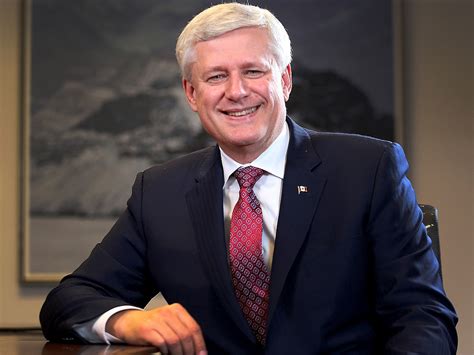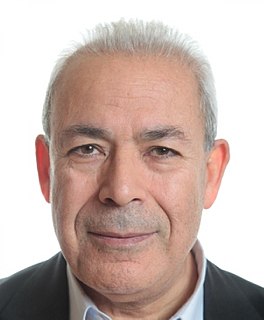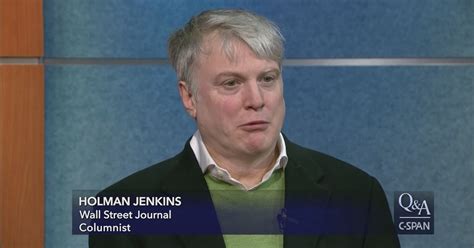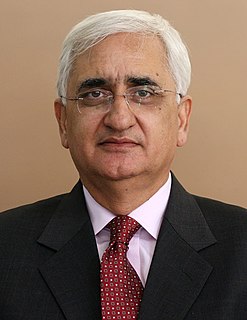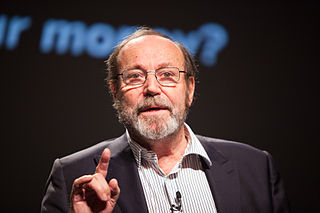Top 528 Regional Quotes & Sayings - Page 9
Explore popular Regional quotes.
Last updated on November 18, 2024.
I've always loved theatre because it's so immediate. The challenge of it is that, career wise, it's easier to get traction in the industry if you do film and TV because the audience is larger, and because the work can be seen for a longer period of time. I did solid work in a series of regional and Off-Broadway shows, but the work I did on TV or film will have a longer life with a larger audience (and with services like Netflix). Ultimately, there's something intimate about TV, because the storytelling and the actors come home with the viewer. It can be powerful because of that.
The Syrian people will never forget those who extended their hand to help them rid of their dictatorship. The Syrian people also would love to be friends with all nations. I think the new Syria will contribute greatly to the return of regional stability and the birth of common development with Arab nations and the region. The only exception is those countries that still harm the Syrian peoples and take some of their rights. We are looking for a region where cooperation, prosperity, and peace flourish.
Boris Yeltsin's period was characterized by a no less irresponsible attitude to people's lives, but in other ways. In his haste to have private rather than state ownership as quickly as possible, Yeltsin started a mass, multi-billion-dollar fire sale of the national patrimony. Wanting to gain the support of regional leaders, Yeltsin called directly for separatism and passed laws that encouraged and empowered the collapse of the Russian state. This deprived Russia of its historical role for which it had worked so hard, and lowered its standing in the international community.
I started going out with one of my managers and he really grew me up in a lot of ways. He introduced me not just to being a full-time traveler, which I was, but he was also really very interested in history and art and continued to open my eyes up to regional history; less splashy histories. He was interested in historical societies and stuff like that. He introduced me to a way of looking at the way communities form that is the foundation for the book that I've just finished writing that has to do with what I see as effective community-building wherever I've been traveling.
We were doing the same thing. We will never have "a" Chicano English or Spanish because of regional differences. But I think that because of our bilingual history, we'll always be speaking a special kind of English and Spanish. What we do have to do is fight for the right to use those two languages in the way that it serves us. Nuevo-mexicanos have done it very well for hundreds of years, inventing words where they don't have them. I think the future of our language is where we claim our bilingualism for its utility.
Your regional newspaper, and I like to use this example, in your local museum buys a Picasso, that's news especially if they've spent $10 million for it. But if you don't have a credit on your staff then you don't have anybody who's confident to say whether or not it was a good Picasso, might even be aware of the fact that there are bad Picassos. Arts journalists who don't have the experience of criticism, the skill of criticism, don't think in terms of critical evaluation are not going to be as good a journalist as they might be.
Journalism is a great profession. It's complicated now. People talk about the demise of investigative reporting. I was a judge in some award contest recently, and the stuff that is being done by major newspapers, and local, regional papers around the country, is great. Newspapers play an amazing role in our society, and I still think they are important. I'm sorry newspaper circulation is down. Ultimately, the importance of newspapers can't be replaced.
This generation has altered the composition of the atmosphere on a global scale through radioactive materials and a steady increase in carbon dioxide from the burning of fossil fuels. Entire regional airsheds, crop plant environments, and river basins are heavy with noxious materials. Motor vehicles and home heating plants, municipal dumps and factories continually hurl pollutants into the air we breathe. Each day almost 50,000 tons of unpleasant, and sometimes poisonous, sulfur dioxide are added to the atmosphere, and our automobiles produce almost 300,000 tons of other pollutants.
Without a deal [with Iran], the international sanctions regime will unravel with little ability to reimpose them. With this deal, we have the possibility of peacefully resolving a major threat to regional and international security. Without a deal, we risk even more war in the Middle East and other countries in the region would feel compelled to pursue their own nuclear programs, threatening a nuclear arms race in the most volatile region in the world.
I made the Dixie Heights High School baseball team as an 8th grader and went on to have a very successful career. I was all state both my junior and senior years leading our team 3 district championships and 1 regional championship in 2001 which hadn't happened since 1991. My number has since been retired at Dixie Heights and a banner hangs from the outfield fence with my name and number on it.
I think Nigerians got it wrong from independence as people became so conscious of the divisions because we wanted so much to satisfy the plurality of interests. I will say, we neglected the importance of real value, human value and the quality of potential in human beings and we contrived phrases like geographical spread, regional quota, etc and allowed mediocrity to reign. I think that is the problem that we are dealing with till today.
You will hear people say the C-word. Except, it's a regional language: in British English, c - t has much less of an inflammatory sense than it does in North American English. You can hear someone on British TV called "a c - ting monkey" or a man being called a c - t. The particular fascination of profanity is how culturally specific it is and how it evolves.
The Planetary Regime might be given responsibility for determining the optimum population for the world and for each region and for arbitrating various countries’ shares within their regional limits. Control of population size might remain the responsibility of each government, but the Regime would have some power to enforce the agreed limits.
What interested me the most was that when I [traveled to Europe] I knew what Joseph Beuys was doing, he knew what I was doing, and we both, we just started to talk. How did I know what Daniel Buren was doing, and to an extent, he knew exactly what I was doing? How did everybody know? It's an interesting thing. I'm still fascinated by it because, why is it now, with the Internet and everything else, you get whole groups of artists who have chosen to be regional? They really are only with the people they went to school with.
I think the Iraqis themselves will have to make a determination as to what type of government they ultimately come up with and what kind of nation they ultimately come up with. But they can continually use America's troops presence. The problem is not going to change until they are confronted with the reality that they have to make decisions and they have to make them themselves. They have to decide whether they want a country, whether they're willing to put their lives on the line and sacrifice for a national interest as opposed to a regional or sectarian interest.
Out of the chaos of post-Roman Dark Age Britain, the English had created the world's first nation-state: One king, one country, one church, one currency, one language and a single unified representative national administration. Never again in England would sovereignty descend to the merely regional level. Never again would the idea of England and the unity of England ever be challenged.
It is quite clear that as long as the nations of the world spend most of their energy, money, and emotional strength in quarreling with words and weapons, a true offensive against the common problems that threaten human survival is not very likely. A world government that can channel human efforts in the direction of the great solutions seems desirable, even essential. Naturally, such a world government should be a federal one, with regional and local autonomy safeguarded and with cultural diversity promoted.
I was interning at a children's theater group in Kentucky - that was my first job out of college. I had jumped around a couple of regional theaters, and I was about to go back to Maine to work at a summer Shakespeare theater there. I didn't want to just jump around the country from gig to gig. I really wanted to go to a city and get involved in a theater scene and a theater community.
The Chinese central government will slowly and steadily lose authority while regional armies [gain power]. The Western powers are going to take sides to protect their investments - they have put billions of dollars into Shanghai. Their fear is that [these investments] are going to be expropriated by a warlord from the interior who will sweep down on Shanghai. They will try to form alliances with warlords to protect their concessions, and there will be a huge flow of weapons into China.
Actually, the phrase "national security" is barely used until the 1930s. And there's a reason. By then, the United States was beginning to become global. Before that the United States had been mostly a regional power - Britain was the biggest global power. After the Second World War, national security is everywhere, because we basically owned the world, so our security is threatened everywhere. Not just on our borders, but everywhere - so you have to have a thousand military bases around the world for "defense."
All of these concoctions that we think are Mexican, are in no way reflective of the deep, incredibly old, complex and sophisticated deep regional cuisine of Mexico. Or the new modern Mexican cuisine, which has really been exploding over the last few years. I think we just have a completely misrepresented view of how good, how complex these flavors are. I think we could learn a lot more. It's a great cuisine that's really moving forward, faster than any other.
Once, BBC television had echoed BBC radio in being a haven for standard English pronunciation. Then regional accents came in: a democratic plus. Then slipshod usage came in: an egalitarian minus. By now slovenly grammar is even more rife on the BBC channels than on ITV. In this regard a decline can be clearly charted... If the BBC, once the guardian of the English language, has now become its most implacable enemy, let us at least be grateful when the massacre is carried out with style.
When profits are pursued by geographic interchange of goods, so that commerce for profit becomes the central mechanism of the system, we usually call it "commercial capitalism." In such a system goods are conveyed from ares where they are more common (and therefore cheaper) to areas where they are less common (and therefore less cheap). This process leads to regional specialization and to division of labor, both in agricultural production and in handicrafts.
When I say that terrorism is war against civilization, I may be met by the objection that terrorists are often idealists pursuing worthy ultimate aims -- national or regional independence, and so forth. I do not accept this argument. I cannot agree that a terrorist can ever be an idealist, or that the objects sought can ever justify terrorism. The impact of terrorism, not merely on individual nations, but on humanity as a whole, is intrinsically evil, necessarily evil and wholly evil.
Some countries have a parliamentary republic, some are presidential republics and some are still monarchies, but no one sees them as not being democratic. In some countries regional leaders are appointed from the centre and in others they are elected. In Russia, the president is elected through direct secret ballot, and in the United States, the president is elected through a system of electoral colleges.
Most professionals specialize in only part of the complex community revitalization process. Incomplete efforts usually create messy, expensive, demoralizing failures. Few specialists understand how to bring a place back to life with a holistic approach. If anyone understands the complete revitalization process, it's Storm Cunningham. He's spent over a decade rigorously studying successes and failures worldwide. He can look at a community, regional, or organizational regeneration or redevelopment process, and quickly spot what's wrong...what's missing.
Before modern man can gain control over the forces that now threaten his very existence, he must resume possession of himself. This sets the chief mission for the city of the future: that of creating a visible regional and civic structure, designed to make man at home with his deeper self and his larger world, attached to images of human nature and love.
We are neither a regional power nor are the Balkans our sphere of influence. These are self-confident countries. We should be particularly thankful to Macedonia, a country that has taken on a very difficult task without profiting from it. Quite to the contrary: Instead of praise, there was criticism from the international media. The reason for our decision was that we were being massively overstretched - we had to stop the influx. Whether that also had a positive impact in Germany, that judgment must be made there.
Will customers keep supporting the enormous overhead required to sustain ineffectual, unproductive stock picking across an array of thousands of individual funds devoted to every investing 'style' and economic sector or regional subgroup that some marketing idiot can dream up? Not likely. A brutal shakeout is coming and one of its revelations will be that stock picking is a grossly overrated piece of the puzzle, that cost control is what distinguishes a competitive firm from an uncompetitive one.
You have a lot of suspicion from the neighbors of Afghanistan about U.S. intentions. Iran is already, to some extent, trying to undermine the U.S. in Afghanistan. Russia is now becoming increasingly nervous about a more permanent U.S. presence in Central Asia. And China is not keen that the U.S. should be so close to its borders over a long period of time. Certainly, if the U.S. is going to be there for a long time, it's going to exacerbate regional tensions.
After that really, I spent the majority of the spring going to tons and tons of regional festivals throughout America. Every corner of the country, I took the movie to twenty film festivals or something to that extent. I've lost track. Probably done Q&As 40-50 times at this point. It's always hard to watch something I've made, but I've got a little more objectivity and kind of see the film as not just an extension of myself.
we ought to realize by now (see Korea, see Vietnam, see Afghanistan, see Iraq, see Iran) that deploying the US military, or dealing billions of dollars a year of arms to our ally of the moment that can serve as a regional rival to our enemy of the moment, is not always the best way to make threats go away. Our military and weapons prowess is a fantastic and perfectly weighted hammer, but that doesn't make every international problem a nail.
Now we characterise Russian-Chinese relations as a strategic partnership, even a special strategic partnership. We have never had such a level of trust with China before. China is our major trade and economic partner among foreign states. We implement joint multi-billion projects. We cooperate not only within the UN Security Council, which is logical, as both China and Russia are permanent members of the UN Security Council, but also within such regional organisations as the Shanghai Cooperation Organisation, BRICS, etc.
Now we are talking about concluding a free trade agreement between the Eurasian Economic Council, recently established in the post-Soviet space, and China. A similar agreement was concluded a short time ago with Vietnam. Then, we will coordinate, at least we are ready to do this, the Chinese concept of the Silk Road Economic Belt with our newly-created regional organisation. So, do you understand how diverse, multi-faceted and deep Russian-Chinese ties have become over the last couple of decades? And we resolved the border issue.
Burma is located between China, India, and South East Asia. So it is quite natural that a country wanting diplomatic relations with our country would pay attention to who our regional neighbors are. It is not at all fair to ask a country to build relations with Burma but not take into account the situation in China. There is no way to think that taking the Chinese situation into consideration shows a disregard for Burma.
I've obviously come from a health background. I was a doctor before I became a pollie and one of the things I'd like to do is to really build on the world-class health system we've got. I'm passionate about climate change because it's also a health issue. Things like extreme weather impact on people's health, the ability of our hospitals to cope, the impact on mental health, on farmers in regional areas - they're all serious health concerns.
I grew up in a theater family. My father was a regional theater classical repertory producer. He created Shakespeare festivals. He produced all of Shakespeare's plays, mostly in Shakespeare festivals in Ohio. One of them, the Great Lakes Theater Festival in Cleveland, is still going. So I grew up not wanting to be an actor, not wanting to go into the family business.
Can we say that the constitutional monarchies in Spain, Belgium or England are democratic? Those with superior chambers like the House of Lords in England, that still represent the English feudal nobility in terms of positions above regional representatives, who are in the end the representatives supposedly elected by the population. Many mechanisms exist, but they are mechanisms to preserve the power of the wealthy classes, of the bourgeois classes that hold the power and rights above the rest of the society.
When excesses such as lax lending standards become widespread and persist for some time, people are lulled into a false sense of security, creating an even more dangerous situation. In some cases, excesses migrate beyond regional or national borders, raising the ante for investors and governments. These excesses will eventually end, triggering a crisis at least in proportion to the degree of the excesses. Correlations between asset classes may be surprisingly high when leverage rapidly unwinds.
What a lot of folks feel - and some of the other commenters have mentioned this - is that there isn't a very clear way for somebody who's working-class, who is middle-income to really get ahead in 21st century America. That implicates our education system. It also implicates our local and regional economies. And I think that folks will expect Trump to fix a lot of those things. But, of course, it's a really tall order, and it's not going to happen overnight.
The term "globalization," like most terms of public discourse, has two meanings: its literal meaning, and a technical sense used for doctrinal purposes. In its literal sense, "globalization" means international integration. Its strongest proponents since its origins have been the workers movements and the left , which is why unions are called "internationals", and the strongest proponents today are those who meet annually in the World Social Forum and its many regional offshoots.
India considers Saudi Arabia a center of stability in the region. The security and stability of the Gulf region and that of the Indian subcontinent are interlinked. Bilateral security cooperation between India and Saudi Arabia will contribute to regional stability and in addressing the common threat of terrorism in the region.
I wouldn't necessarily assume that because Capricornia has traditionally been a Labor seat, that it'll go back to the Labor Party this time because the big issue in Capricornia which is based on the city of Rockhampton is the fact that the economy is - the regional economy is in a poor shape as a result, in particular of the decline of the mining industry and they are looking to the Carmichael mine, the Adani project as containing all of the prospects that they see for their future and that is why people in Rockhampton are very, very fearful of a Labor-Greens government.
Complementary currencies work in addition to existing money, rather than replacing existing, official money. There are whole different families of complementary currencies. One of them is local currencies. One is regional currencies. Another is functional currencies. Another is social-purpose currencies.
In the Middle East, where populations are growing fast, the world is seeing the first collision between population growth and water supply at the regional level. For the first time in history, grain production is dropping in a geographic region with nothing in sight to arrest the decline. Each day now brings 10,000 more people to feed and less irrigation water with which to feed them.
